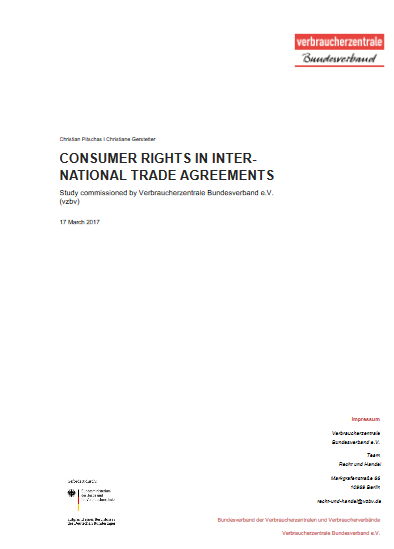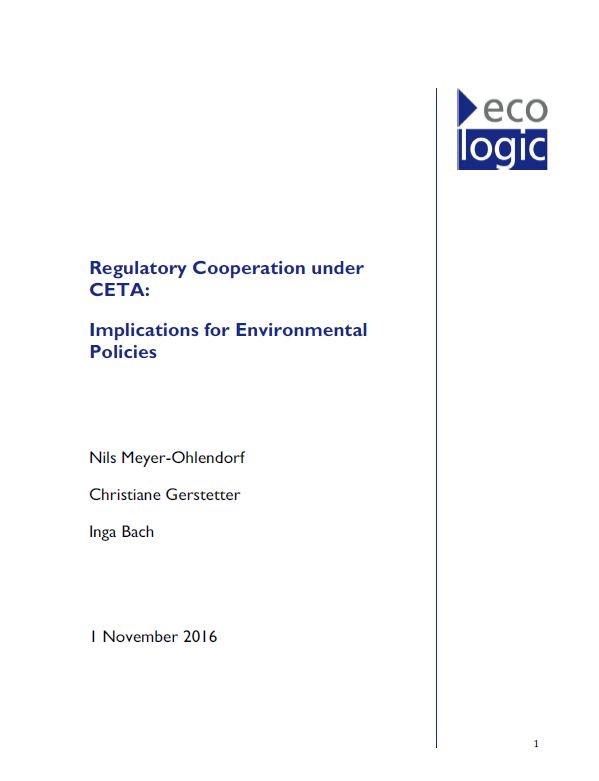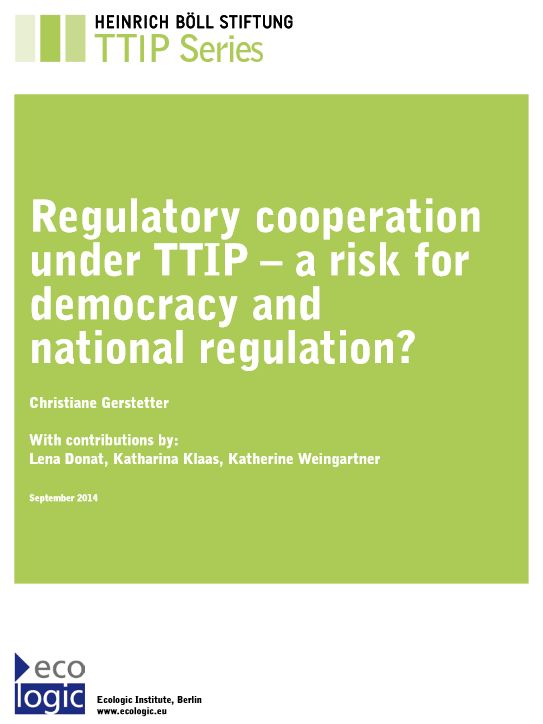Consumer Rights in International Trade Agreements
- Publication
- Citation
Pitschas, Christian and Christiane Gerstetter 2017: Consumer Rights in International Trade Agreements. Verbraucherzentrale Bundesverband: Berlin.
In principle, increased trade resulting from trade agreements can offer consumers access to goods and services that are less expensive or of higher quality. At the same time, there is a risk that rules in trade and investment agreements limit the sovereign right of states to adopt measures for consumer protection at the domestic level. Hence, much depends on how these agreements are designed. A study, compiled by Christiane Gerstetter, Senior Fellow at Ecologic Institute and Christian Pitschas, provides an overview of consumer-related rights in recent international trade agreements. The study was commissioned by the Federation of German Consumer Organisations (vzbv); it is available only in German.
The study analyses several WTO agreements as well as the bilateral the trade agreements of the EU with Canada (CETA), Korea and Vietnam respectively, the US with Korea and the Transpacific Partnership (TPP). It conludes that by and large the consumer-related provisions are similar in the different agreeemnts, with some variation in details.
The study recommends modifying existing consumer-related rules concerning the following aspects in particular:
- The public interests protected by the general exception clauses should be supplemented by more explicitly mentioning "consumer protection" as a public interest.
- The contracting parties' right to regulate trade in services for achieving public policy objectives should be emphasized more strongly in trade agreements. Moreover, the criteria defining if and when a service is supplied in the exercise of governmental authority should be phrased more clearly, since such "public" services are excluded from the scope of the chapters on services trade.
- As regards electronic commerce, the provisions on the protection of personal information as well as those on the protection of consumers against deceptive and fraudulent commercial practices could be formulated in a more precise as well as in a legally binding way.
- The involvement of consumer organisations in consultations and debates on the implementation of the respective trade agreements should be enhanced by defining appropriate rules.








